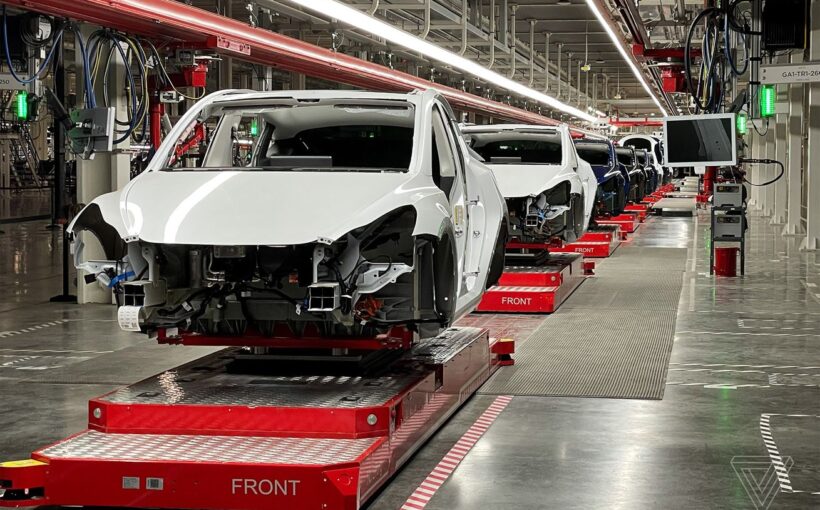Industrial activity in the eurozone slumped to a six-month low in June, casting doubt over the strength of the region’s economic recovery.
The purchasing managers index (PMI) combined by S&P Global, a closely-watched real-time indicator of activity production, fell to 45.6 in June, according to a preliminary estimate, down from 47.3 in May and below analysts’ expectations of 48.
The drop was even more marked in Germany, traditionally Europe’s industrial powerhouse. Its manufacturing PMI slid to 43.4, below a consensus forecast of 46.4 and down from May’s figure of 45.4. France’s index also came in below forecasts, but not to the same extent.
The numbers add fresh economic concerns to the political ones that have rattled markets in the last two weeks. The benchmark Stoxx 600 stock index fell 0.8 percent, while 10-year government bond yields fell by around 0.05 percentage point in both France and Germany.
The unexpected slowdown challenges assumptions by the European Central Bank and national governments that a sustained recovery has set in.
“All indicators point to the fact that demand for industrial goods is not getting off the ground, despite an improved global environment,” said Cyrus de la Rubia, chief economist at Hamburg Commercial Bank, in a note accompanying the German data. De la Rubia said that businesses were clearing out their inventories without replacing them, “a clear indication that the demand recovery is taking a hit.”
HSBC’s chief economist for Germany Stefan Schilbe said that the data highlights that Germany’s recovery remains slow and reliant on global demand. Germany’s export data for non-EU countries in May — a bracket that includes the crucial markets of the U.S. and China — shows a drop of 6.4 percent month-on-month.
De la Rubia added that the PMI data suggested the German economy will actually marginally contract in the second quarter, rather than growing slightly as previously forecast. That’s despite the fact that the services sector is still growing.
Services have performed more strongly than manufacturing ever since the end of the pandemic and the 2022 energy price spike, and that continues to be the case: the services PMI was 52.6 in the eurozone and 53.5 in Germany, but both numbers fell from a month earlier.
However, others weren’t yet ready to give up on the recovery narrative. Deutsche Bank’s Marc Schattenberg said he still expects 0.3 percent growth in Germany in the current quarter, due largely to the fact that wages are now clearly growing faster than inflation. Many economists, including those at the ECB, see this as having a big influence in supporting demand for the rest of the year.
(This article has been updated with additional analyst comment.)


